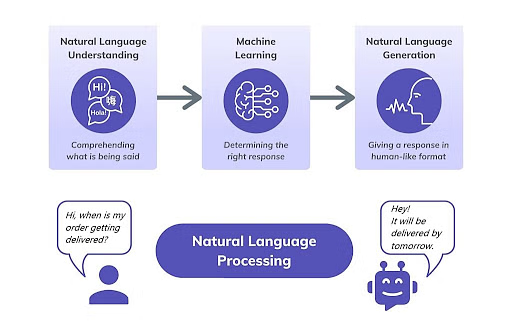The landscape of customer service has undergone a dramatic transformation over the past decade, driven largely by advances in conversational artificial intelligence that enable more natural, efficient, and personalized customer interactions. From Nuance perspective as a pioneer in speech recognition and natural language understanding, conversational AI represents not just a technological evolution but a fundamental reimagining of how businesses connect with their customers across all touchpoints.
Modern customers expect immediate responses, personalized experiences, and seamless interactions regardless of the communication channel they choose. Traditional customer service models, relying heavily on human agents and rigid script-based responses, struggle to meet these evolving expectations while managing operational costs and maintaining service quality. Conversational AI bridges this gap by providing intelligent, context-aware interactions that feel natural and helpful while operating at scale.
The integration of nuance voice biometrics and advanced natural language processing creates customer service experiences that are both highly secure and remarkably intuitive. This technology enables businesses to authenticate customers seamlessly, understand complex requests, and provide personalized responses that reflect individual customer history and preferences.
Understanding Conversational AI Technology
Conversational AI encompasses a sophisticated blend of technologies that work together to understand, process, and respond to human communication in natural, contextually appropriate ways. This technology goes far beyond simple chatbots or keyword-matching systems to create truly intelligent interactions that can handle complex, multi-turn conversations.
Core Technologies Behind Conversational AI
Modern conversational AI systems integrate several advanced technologies to deliver human-like interactions:
- Natural Language Understanding (NLU): Interpreting user intent and extracting relevant information from natural speech or text
- Automatic Speech Recognition (ASR): Converting spoken language into text with high accuracy across various accents and speaking styles
- Natural Language Generation (NLG): Creating contextually appropriate, natural-sounding responses
- Dialogue Management: Maintaining conversation context and managing interaction flow across multiple exchanges
- Machine Learning Models: Continuously improving system performance through interaction data and feedback
These technologies work synergistically to create conversational experiences that feel natural and productive while handling the complexity and nuance of human communication.
Advanced Context Awareness and Memory
One of the key differentiators of sophisticated conversational AI systems is their ability to maintain context throughout extended conversations and remember relevant information from previous interactions. This capability enables more natural conversation flows and reduces customer frustration by eliminating the need to repeat information.
Context awareness features include:
- Conversation history retention across multiple interaction sessions
- Integration with customer relationship management systems for personalized responses
- Understanding of implied references and conversational shortcuts
- Ability to handle topic changes and return to previous conversation threads
- Recognition of emotional context and appropriate response adaptation
Nuance Approach to Conversational AI Excellence
Nuance brings decades of expertise in speech recognition, natural language processing, and industry-specific AI applications to the conversational AI landscape. This deep domain knowledge enables the creation of solutions that understand not just what customers say, but what they truly mean within specific business contexts.
Industry-Specific Language Models and Terminology
Different industries have unique vocabularies, communication patterns, and customer service requirements that generic conversational AI systems often struggle to handle effectively. Nuance addresses this challenge through specialized language models tailored for specific industries and use cases.
Industry-specific capabilities include:
- Financial Services: Understanding of banking terminology, regulatory requirements, and security protocols
- Healthcare: Medical terminology recognition and HIPAA-compliant communication handling
- Telecommunications: Technical support vocabulary and service-specific troubleshooting procedures
- Retail: Product knowledge integration and e-commerce transaction support
- Government: Compliance-aware communication and citizen service optimization
This specialization ensures that conversational AI systems can handle industry-specific requests with accuracy and appropriateness that generic solutions cannot match.
Multi-Modal Communication Support
Modern customer service requires seamless integration across multiple communication channels, from voice calls and chat messages to email and social media interactions. Nuance Gatekeeper technology enables consistent conversational AI experiences across all these touchpoints while maintaining security and personalization.
Multi-modal features include:
- Unified conversation history across voice, text, and digital channels
- Consistent personality and brand voice regardless of interaction medium
- Cross-channel authentication and security maintenance
- Seamless escalation between automated and human agent assistance
- Real-time translation and localization for global customer bases
Transforming Customer Experience Through Intelligent Automation
Conversational AI transforms customer experience by providing immediate, accurate, and personalized responses to customer inquiries while reducing wait times and eliminating common friction points in traditional customer service interactions.
24/7 Availability and Instant Response
One of the most immediate benefits of conversational AI implementation is the ability to provide round-the-clock customer service without the operational overhead of staffing call centers continuously. This capability is particularly valuable for global businesses serving customers across multiple time zones.
Always-on service benefits include:
- Immediate response to customer inquiries regardless of time or day
- Consistent service quality that doesn’t vary based on agent availability or expertise
- Reduced customer frustration from long wait times or unavailable support
- Nuance PowerMic integration for voice-activated customer service workflows
- Scalable capacity that automatically adjusts to demand fluctuations
This availability transforms customer expectations and enables businesses to provide superior service experiences that differentiate them from competitors relying on traditional support models.
Personalized Interactions Based on Customer History
Advanced conversational AI systems leverage comprehensive customer data to provide personalized interactions that reflect individual preferences, purchase history, and previous service experiences. This personalization creates more relevant and effective customer service interactions.
Personalization capabilities include:
- Greeting customers by name with awareness of their relationship status and history
- Proactive identification of likely customer needs based on previous interactions
- Customized product recommendations and service suggestions
- Appropriate communication style adaptation based on customer preferences
- Scansoft PaperPort integration for document-based customer service scenarios
This level of personalization was previously only possible with experienced human agents who had extensive knowledge of individual customers, but conversational AI now makes it scalable across entire customer bases.
Intelligent Routing and Escalation Management
Not all customer inquiries can or should be handled entirely through automated systems. Sophisticated conversational AI includes intelligent routing capabilities that determine when human intervention is needed and ensure smooth transitions that preserve conversation context and customer satisfaction.
Intelligent routing features include:
- Real-time assessment of conversation complexity and escalation needs
- Skills-based routing to appropriate human agents when escalation is required
- Seamless context transfer ensuring customers don’t need to repeat information
- Sentiment analysis to identify frustrated customers requiring immediate human attention
- Nuance Cloud Drive integration for sharing relevant documents during escalations
This intelligent management ensures that customers receive the most appropriate level of service while optimizing human agent utilization for complex issues that truly require human expertise.
Industry Applications and Use Cases
Conversational AI applications vary significantly across industries, each with unique requirements, regulations, and customer expectations that shape how the technology is implemented and optimized.
Financial Services and Banking
The financial services industry has been an early adopter of conversational AI technology, driven by high customer interaction volumes, stringent security requirements, and the need for 24/7 service availability. What is Nuance PowerShare technology enables secure, compliant customer interactions that meet regulatory requirements while providing exceptional service experiences.
Banking applications include:
- Account balance inquiries and transaction history requests
- Credit card activation and fraud reporting assistance
- Loan application support and status updates
- Investment advice and portfolio management guidance
- Secure authentication through voice biometric verification
According to McKinsey & Company, financial institutions implementing conversational AI report customer satisfaction improvements of 20-30% while reducing operational costs by up to 40%.
Healthcare and Medical Services
Healthcare organizations leverage conversational AI to improve patient engagement, streamline administrative processes, and provide accessible health information while maintaining strict privacy and security standards.
Healthcare applications include:
- Appointment scheduling and rescheduling with provider availability integration
- Symptom assessment and triage for appropriate care level routing
- Prescription refill requests and pharmacy coordination
- Insurance verification and coverage inquiry support
- Brother PaperPort system integration for managing patient documentation
The healthcare industry’s adoption of conversational AI has accelerated significantly, particularly following the COVID-19 pandemic’s emphasis on contactless interactions and remote service delivery.
Retail and E-commerce
Retail organizations use conversational AI to enhance online shopping experiences, provide product support, and manage customer relationships throughout the purchase and post-purchase journey.
Retail applications include:
- Product recommendation and comparison assistance
- Order tracking and delivery status updates
- Return and exchange process management
- Size and fit guidance for apparel and footwear
- PaperPort 14 Windows 11 compatibility for order documentation management
These applications help retailers provide personalized shopping experiences that rival in-person assistance while operating at the scale required for online commerce.
Advanced Features and Capabilities
Modern conversational AI systems include sophisticated features that enable more natural, effective, and secure customer interactions while providing businesses with valuable insights into customer needs and preferences.
Emotion Recognition and Sentiment Analysis
Understanding customer emotions and sentiment enables conversational AI systems to respond more appropriately to different emotional states and identify customers who may need additional support or escalation to human agents.
Emotion recognition capabilities include:
- Real-time sentiment analysis during voice and text conversations
- Emotional state adaptation for response tone and style modification
- Frustration detection for proactive human agent escalation
- Satisfaction monitoring for service quality assessment
- Nuance PaperPort 12 integration for emotion-aware document processing
This emotional intelligence enables more empathetic and effective customer service interactions that better meet individual customer needs and emotional states.
Predictive Analytics and Proactive Service
Advanced conversational AI systems can analyze patterns in customer interactions to predict future needs and provide proactive service that addresses issues before they become problems.
Predictive capabilities include:
- Identification of customers at risk for service issues or churn
- Proactive outreach for service renewal or upgrade opportunities
- Preventive maintenance recommendations based on usage patterns
- Seasonal demand prediction for capacity planning
- PaperPort Professional 14 system integration for predictive document management
This proactive approach transforms customer service from reactive problem-solving to preventive relationship management that enhances customer satisfaction and loyalty.
Multi-Language and Cultural Adaptation
Global businesses require conversational AI systems that can communicate effectively across different languages and cultural contexts while maintaining consistent service quality and brand representation.
Multi-language features include:
- Real-time language detection and automatic switching
- Cultural context awareness for appropriate communication styles
- Localized product and service information integration
- Regional compliance and regulatory requirement adherence
- Nuance PaperPort Professional 14.5 support for multi-language documentation
These capabilities enable businesses to serve diverse, global customer bases with locally appropriate service experiences while maintaining operational efficiency.
Implementation Strategies and Best Practices
Successful conversational AI implementation requires careful planning, stakeholder engagement, and attention to user experience design principles that ensure customer adoption and satisfaction.
Customer Journey Mapping and Use Case Identification
Effective conversational AI implementation begins with comprehensive analysis of customer interaction patterns, common service requests, and opportunities for automation and improvement.
Planning considerations include:
- Analysis of current customer service interaction volumes and types
- Identification of repetitive tasks suitable for automation
- Assessment of complex scenarios requiring human agent expertise
- PaperPort 14.5 Download integration planning for document-heavy processes
- Customer satisfaction pain points and improvement opportunities
This analysis ensures that conversational AI implementation addresses real customer needs while providing measurable business benefits.
Phased Deployment and Continuous Optimization
Successful implementations typically follow phased approaches that allow for learning, optimization, and gradual expansion of conversational AI capabilities.
Deployment phases include:
- Pilot Phase: Limited deployment for specific use cases and customer segments
- Expansion Phase: Gradual rollout across additional interaction types and channels
- Integration Phase: Deep integration with existing systems and processes
- Optimization Phase: Continuous improvement based on usage data and customer feedback
- Innovation Phase: Advanced feature adoption and custom capability development
This phased approach minimizes risk while maximizing learning opportunities and customer satisfaction throughout the implementation process.
Measuring Success and ROI
Organizations implementing conversational AI must establish comprehensive metrics for measuring success and demonstrating return on investment across customer satisfaction, operational efficiency, and business performance dimensions.
Customer Experience Metrics
Customer experience improvements provide both immediate and long-term benefits that can be measured through various metrics and satisfaction indicators.
Experience metrics include:
- Customer satisfaction scores and net promoter scores
- First-call resolution rates and issue resolution time
- Customer effort scores and interaction complexity reduction
- Channel preference shifts and digital adoption rates
- PaperPort Free Download utilization for self-service documentation access
These metrics enable organizations to demonstrate the customer experience benefits of conversational AI while identifying areas for continued improvement.
Operational Efficiency and Cost Reduction
Conversational AI implementations typically deliver significant operational efficiency improvements and cost reductions that provide measurable return on investment.
Efficiency metrics include:
- Reduction in human agent workload for routine inquiries
- Decreased average handling time for complex issues requiring human intervention
- Improved agent productivity through intelligent routing and context preservation
- Reduced training requirements for new customer service representatives
- Download PaperPort 14 automation for document-intensive customer service processes
According to Forrester Research, organizations implementing comprehensive conversational AI solutions typically see ROI within 6-12 months through operational cost reductions and customer experience improvements.
Future Developments and Innovation Roadmap
The conversational AI landscape continues evolving rapidly with new technologies and capabilities that will further transform customer service delivery and customer experience optimization.
Emerging Technology Integration
Future conversational AI systems will incorporate cutting-edge technologies that expand capabilities and create new opportunities for customer service innovation.
Emerging technologies include:
- Advanced AI Models: Large language models with enhanced reasoning and contextual understanding
- Computer Vision: Visual AI integration for multimedia customer service interactions
- Augmented Reality: Immersive customer service experiences with visual guidance and support
- Edge Computing: Local processing for reduced latency and enhanced privacy
- Blockchain Integration: Secure, verifiable customer interaction records and authentication
Market Evolution and Customer Expectations
Customer expectations for conversational AI continue evolving, driven by improved technology capabilities and increased adoption across industries.
Evolution trends include:
- Higher accuracy expectations for complex query handling
- Increased demand for emotional intelligence and empathy in automated interactions
- Greater integration expectations across multiple service channels and touchpoints
- Enhanced personalization requirements based on comprehensive customer data
- Nuance PaperPort 14 Windows 11 compatibility expectations for modern system integration
Security and Privacy Considerations
Conversational AI systems must address comprehensive security and privacy requirements while maintaining the functionality and user experience that customers expect from modern digital services.
Data Protection and Privacy Standards
Customer service interactions often involve sensitive personal and business information that requires robust protection mechanisms throughout the conversational AI system architecture.
Privacy protection features include:
- End-to-end encryption for all customer communication data
- Secure data storage with access controls and audit logging
- Privacy-preserving analytics that protect individual customer information
- Consent management and customer control over data usage
- Nuance PaperPort 14.5 Download secure integration for document privacy protection
These protections ensure that customers can confidently engage with conversational AI systems while maintaining control over their personal information and privacy preferences.
Regulatory Compliance Framework
Different industries and regions have specific requirements for AI systems and customer data handling that conversational AI implementations must address comprehensively.
Compliance considerations include:
- Financial Services: PCI DSS and banking regulations for payment and financial data
- Healthcare: HIPAA compliance for protected health information handling
- European Union: GDPR requirements for personal data processing and customer rights
- Government: Security clearance and data sovereignty requirements
- International: Cross-border data transfer regulations and local privacy laws
Regular compliance audits and certification updates ensure that conversational AI systems continue meeting evolving regulatory requirements while providing effective customer service capabilities.


